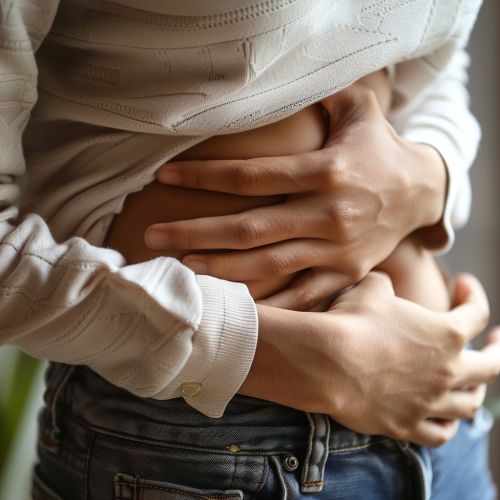Indigestion
Introduction
Indigestion, also known as dyspepsia, is a common gastrointestinal condition characterized by discomfort or pain in the upper abdomen. It is not a disease but a group of symptoms that often include bloating, nausea, and burping. Indigestion can be a symptom of various underlying conditions, such as GERD, peptic ulcers, or gastritis. This article delves into the etiology, pathophysiology, clinical manifestations, diagnostic methods, and treatment options for indigestion.
Etiology
Indigestion can be caused by a multitude of factors, which can be broadly categorized into functional and organic causes.
Functional Causes
Functional dyspepsia is a type of indigestion where no clear organic cause is identified. It is often associated with:
- **Delayed gastric emptying**: This condition, also known as gastroparesis, involves the slow movement of food from the stomach to the small intestine.
- **Visceral hypersensitivity**: Increased sensitivity of the stomach lining to normal digestive processes.
- **Psychological factors**: Stress, anxiety, and depression can exacerbate symptoms of indigestion.
Organic Causes
Organic dyspepsia is linked to identifiable physical abnormalities or diseases, including:
- **Gastroesophageal Reflux Disease (GERD)**: A chronic condition where stomach acid frequently flows back into the esophagus.
- **Peptic Ulcers**: Sores that develop on the lining of the stomach, small intestine, or esophagus.
- **Gastritis**: Inflammation of the stomach lining.
- **Helicobacter pylori infection**: A bacterial infection that can cause ulcers and chronic gastritis.
- **Medications**: Nonsteroidal anti-inflammatory drugs (NSAIDs) and certain antibiotics can irritate the stomach lining.
Pathophysiology
The pathophysiology of indigestion is complex and involves multiple mechanisms:
- **Acid Secretion**: Excessive acid production can damage the stomach lining, leading to pain and discomfort.
- **Motility Disorders**: Abnormalities in the muscular contractions of the stomach and intestines can delay gastric emptying and cause bloating.
- **Visceral Hypersensitivity**: Increased sensitivity of the stomach lining can lead to pain and discomfort even with normal digestive processes.
- **Inflammation**: Chronic inflammation of the stomach lining, as seen in gastritis, can contribute to indigestion.
Clinical Manifestations
The symptoms of indigestion can vary widely among individuals but commonly include:
- **Upper Abdominal Pain**: A burning or gnawing sensation in the upper abdomen.
- **Bloating**: A feeling of fullness and tightness in the stomach.
- **Nausea**: A sensation of wanting to vomit.
- **Belching**: Frequent burping or belching.
- **Early Satiety**: Feeling full quickly after starting to eat.


Diagnostic Methods
Diagnosing indigestion involves a combination of clinical evaluation and diagnostic tests:
Clinical Evaluation
- **Medical History**: A thorough history of symptoms, dietary habits, and medication use.
- **Physical Examination**: Palpation of the abdomen to identify areas of tenderness or swelling.
Diagnostic Tests
- **Endoscopy**: A procedure that uses a flexible tube with a camera to visualize the upper gastrointestinal tract.
- **Ultrasound**: Imaging to detect abnormalities in the abdominal organs.
- **Blood Tests**: To check for infections, inflammation, and other markers.
- **Helicobacter pylori Testing**: Breath, stool, or blood tests to detect H. pylori infection.
Treatment Options
Treatment for indigestion depends on the underlying cause and may include lifestyle modifications, medications, and in some cases, surgical interventions.
Lifestyle Modifications
- **Dietary Changes**: Avoiding spicy, fatty, and acidic foods.
- **Eating Habits**: Eating smaller, more frequent meals and avoiding late-night eating.
- **Stress Management**: Techniques such as yoga, meditation, and cognitive-behavioral therapy.
Medications
- **Antacids**: Neutralize stomach acid and provide quick relief.
- **H2 Receptor Antagonists**: Reduce acid production (e.g., ranitidine).
- **Proton Pump Inhibitors (PPIs)**: Block acid production more effectively (e.g., omeprazole).
- **Prokinetics**: Enhance gastric motility (e.g., metoclopramide).
- **Antibiotics**: For treating H. pylori infection.
Surgical Interventions
Surgery is rarely needed but may be considered in severe cases of GERD or peptic ulcers that do not respond to medication.
